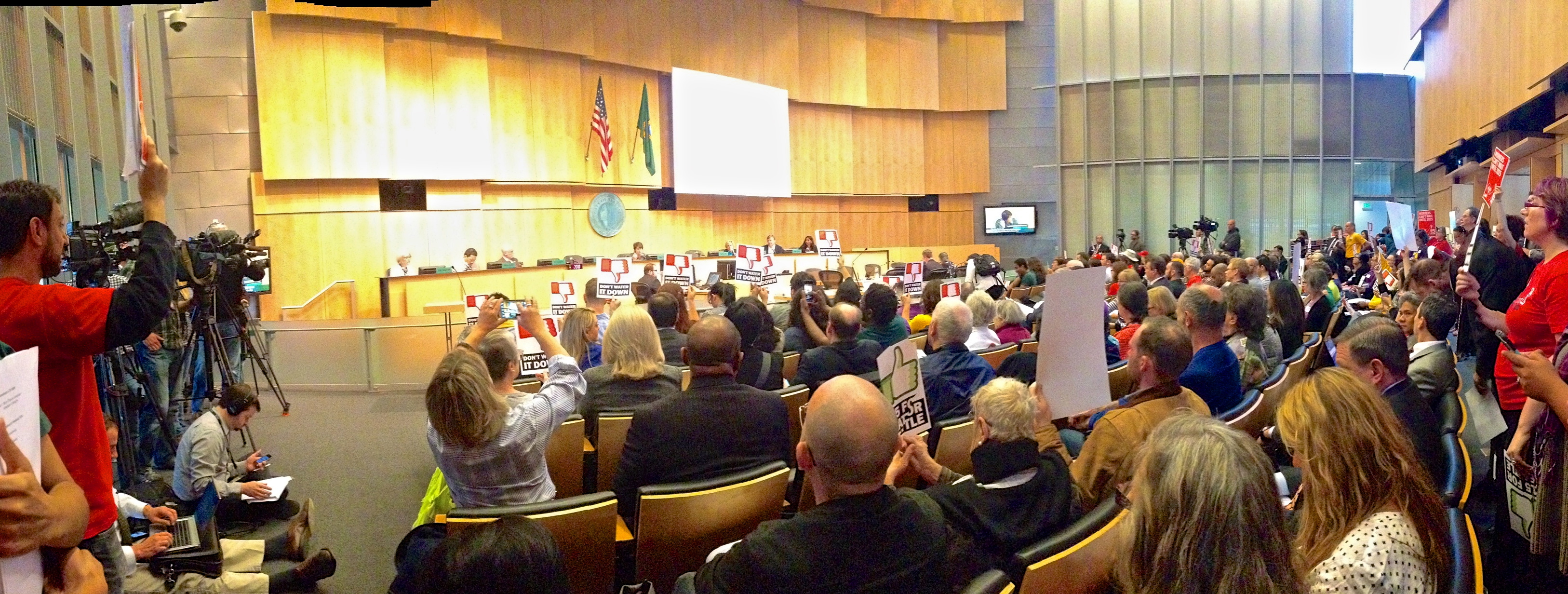A Seattle City Council committee unanimously voted today to pass the Mayor’s proposal for a $15 minimum wage. The ordinance passed out of committee will phase in the minimum wage over the next three to seven years. Specifically, it will require large businesses (500+ employees) to pay $15 by 2017 or 2018, and small businesses (less than 500 employees) to pay $15 by 2019 or 2021.
This historic vote represents a huge victory for workers, communities of color, and progressive leaders through the U.S. The final vote in Council is expected to occur next week.

In the end, City Council did not make some of the dramatic changes recently rumored in the media, but they did make some modest amendments that alter the deal struck by the Mayor’s Income Inequality Advisory Committee.
Below, we highlight and explain some of the most significant changes:
Amendments that support workers:
Council strengthened the power for the City to enforce the minimum wage throughout the ordinance. The City of Seattle is undergoing a separate stakeholder process that will determine how the City handles all labor enforcement strategies; however, the amendments passed today allow for stronger mechanisms than in the Mayor’s proposal. They include:
- Extending the period a worker has to report a violation after it has occurred, from just 180 days to three years, which dovetails Washington State law.
- Ensuring that, if wage theft occurs, employers must not only pay back wages to wronged workers, but they may be subject to a penalty up to $500 for first time violations, $1000 for second time violations, and $20,000 for subsequent violations.
Councilmember Sawant successfully inserted a provision that codifies the City’s intent to identify additional funding for non-profit organizations.
Amendments that weaken the ordinance for workers:
Council pushed back the effective date to April 1, 2015 from January 1, as originally proposed.
The City will allow employers to pay a sub-minimum wage (85% of the minimum) to 14 and 15 year old youth, people with certain disabilities, and apprentices. Employers must apply for a waiver granted by the Department of Labor and Industries – a practice already done under State law. This provision will potentially allow for discriminatory wage practices that are currently allowed under State law. However, the employer will also have to apply to the City for a permit as well. Between the two permits, the requirement for a waiver will create transparency for workers and the public about which employers are requesting and have received permission to pay sub-minimum wages.

